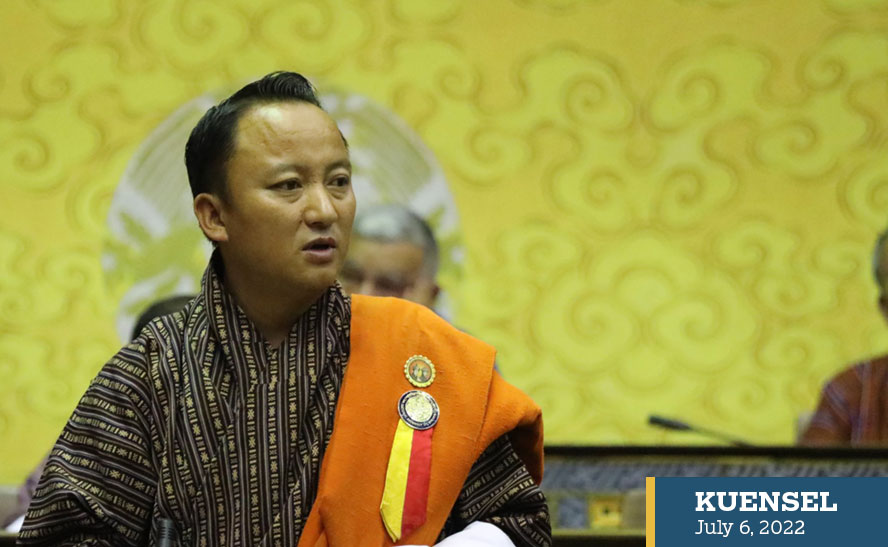2022-23 is the last fiscal year of the 12th Plan
MB Subba
The government is set to implement “transformation initiatives” worth more than Nu 45 billion (B) in the next 10 years.
The initiatives are a set of programmes designed to lay a strong foundation to bring about economic transformation and are expected to maintain the macroeconomic stability of Bhutan as a developed country.
Each of the initiatives, which were formulated by a Transformation Group, captures key outcomes and deliverables, key strategies, major activities and institutional restructuring interventions.
In addition to the above economic measures and stimulus, targeted sectors and areas have been identified under the Transformation Initiatives focused mainly on areas such as energy, technology, infrastructure, water and food.
The Transformation Initiatives will be implemented at an estimated cost of Nu 45.132 billion (B) for a period of 10 years, beginning from the new fiscal year.
Of the total cost, Nu 1B has been allocated in the fiscal year 2022-23 to initiate the programmes. This means that the 2022-23 budget includes activities from the Transformation Initiatives.
Finance Minister Namgay Tshering in the budget report stated that aspirations were drawn from the Royal Kasho on the Civil Service Reform to formulate the Transformation Initiatives.
The initiatives, according to the report, were aimed at ensuring that normal budgeting anomalies are rectified and national priorities are carried beyond the plan period.
It was learnt that the programmes and targets of the Transformation Initiatives were similar to that of the 21st Century Economic Roadmap, which aims to make Bhutan a developed country with a per-capita income of USD about 12,000 in the next 10 years.
However, the priority sectors and the focus of the Transformation Initiatives were slightly different from that of the economic roadmap.
The fiscal year 2022-23 is the last budget year of the 12th Plan and the country’s graduation from the category of Least Developed Countries (LDC) is also part of the transformation process.
With the completion of the 12th Plan, Bhutan is scheduled to graduate from the category of LDC.
The budget report states that Bhutan’s plan for Bhutan’s graduation from the LDC category is on track in spite of the pandemic’s negative impact on the economy. The country, it states, will graduate from LDC in December 2023.
“Graduation from the LDC category will also provide Bhutan with renewed focus and strategies to achieve the 2030 Agenda of SDGs.”
In keeping with the digital transformation pace and to raise awareness and interest in space science and technology in empowering and improving the lives of the Bhutanese people, the government has allocated Nu 41 million (M) to build in-house 3U and 5U satellites in the ongoing fiscal year.
The government, according to the budget report, will pursue additional non-hydro concessional borrowings within the threshold of the Public Debt Policy to finance targeted capital investments in the priority sectors such as digitalisation, and human capital (education) and alternate energy and health.
The reform programmes are also initiated to overcome challenges arising from the pandemic and as a base for greater economic transformation.
The initiatives are expected to enhance economic revival for macroeconomic stability.


